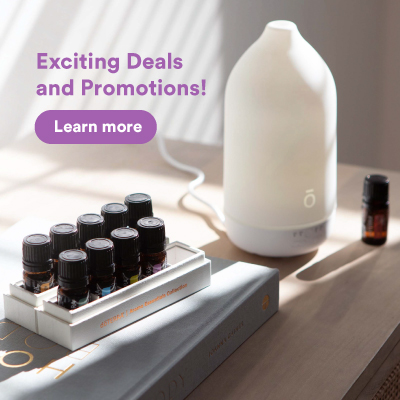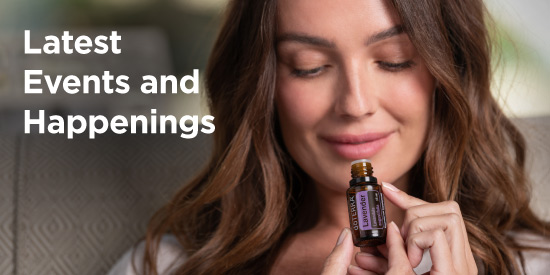Origin: a Latin derivative
meaning "Gift of the Earth."
What You Should Know Before Using Essential Oils
Everyone has to start somewhere on their journey of using essential oils. Whether or not you’ve heard of them before, using them almost always involves a learning curve. To help you have the most positive (and safe) experience, here are some handy tips to starting out:
- Essential oils are incredibly potent. When you are first introduced to essential oils, it can seem like the bottle size is somewhat underwhelming when compared to the cost. However, over time you will realize that even one drop of essential oil can be effectively used. When you take an oil internally, one to two drops is all you need at a time. You can take it internally by putting the drop in a veggie capsule, or by adding it to a glass of water. Even when diffusing the oil, a few drops are sufficient to reap the benefits.
- Avoid sensitive areas. Even though oils are generally safe to apply anywhere on your skin, avoid the following: on or near the inside of your nose, the inner ear, the eyes, broken skin, or other sensitive areas. If you have especially sensitive skin, read on below for our tips on dilution. If your skin starts to turn red, burn, or itch you can also remove the oil by gently wiping the area with a soft cloth, add Fractionated Coconut Oil, and then alternate between adding your carrier oil and wiping it away until the reaction stops.
- When in doubt—dilute. There are some oils that should always be diluted when using topically: Cassia, Cinnamon, Clove, Geranium, Lemongrass, Oregano, and Thyme. For first time use of any of these “hot” oils, we recommend trying them at a ratio of one drop essential oil to 10 drops of Fractionated Coconut Oil, or whatever other carrier oil you choose. Aside from the hot oils, you can dilute any essential oil, especially if you have sensitive skin. Don’t be afraid of possibly lessening the potency of the oil, either. Diluting actually makes it easier for the oil to absorb into your skin quickly before they evaporate, and therefore keeps the benefits.
- Before using an oil internally, check the label first. Aside from checking online to see if an oil is meant for internal use or not, you can also simply look at the label to find out. If the oil includes supplement facts, it can be used internally. If not, the label will simply say, “For aromatic or topical use.” The single oils that should never be ingested are: Arborvitae, Blue Tansy, Cedarwood, Cypress, Douglas Fir, Eucalyptus, Spikenard, and Wintergreen.
- Be aware of the way some oils react to UV light. Some essential oils cause photosensitivity, which can cause your skin to sunburn more easily. To be safe, after using any of the following oils, avoid UV light of any kind for up to 12 hours after applying. These oils are: AromaTouch®, Bergamot, doTERRA Breathe®, doTERRA Cheer®, Citrus Bliss®, Elevation®, doTERRA Forgive®, Grapefruit, InTune®, Lemon, Lime, doTERRA Motivate®, doTERRA On Guard®, Purify, Slim & Sassy®, Wild Orange, and Zendocrine®.
- Children are more sensitive to oils than adults. When using the oils with your kids, always dilute the oil and start by only applying oils to their feet. Diffusing oils is the best course of action for using oils with kids under two years of age. Make sure that you’re always around when your children use an oil, and store them out of reach.
- There are so many uses for oils in everyday life. For whatever reason you started using oils, whether it was to help with wellness or to make your home smell inviting, there are a myriad of other ways to use them. They can also be used for cleaning surfaces, doing laundry, helping with emotional health, and using them for your beauty routine—the list just goes on from there.
What do you wish you had known about essential oils when you started? Leave us your tips in the comments below.





